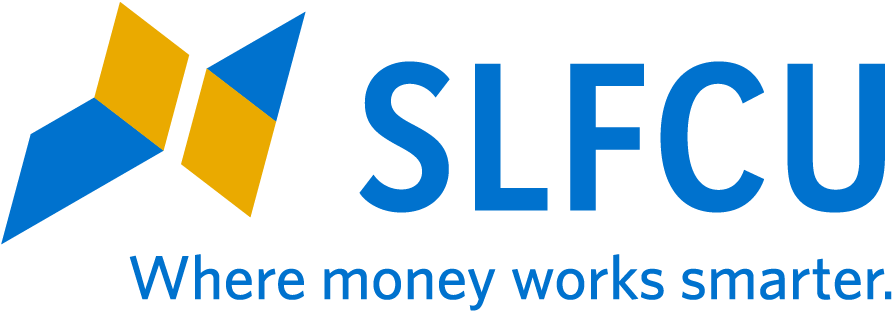Scholarship Competition Winners
Meet Our 2023 SLFCU Scholarship Competition Winners
SLFCU's Scholarship Competition awarded a total of $12,000 among nine students, with a top prize of $4,000. Congratulations to our 2023 winners!

1st Place: Taylor Pouges - attends the University of North Carolina at Greensboro, pursuing a bachelor’s degree in Consumer, Apparel, and Retail Studies
“Finish the semester strong, champion,” my dad said as he ended the phone call. His previous sentence left me too paralyzed in shock to respond. Calmly, he had said, “You have $400 to last you the rest of the semester.” I thought, “Only $400 to last me five months?! Surely, he’ll give me enough to tide me over,” but my dad was firm, and I knew that meant I would have to take my spending habits more seriously. I was in this tight position in the first place because of my impulsive spending habits. If I wanted something, I would buy it without considering the impact it would make on my financial freedom. All the money I had saved over the summer before my sophomore year of college, had been frivolously used in the first semester. Over the course of the following semester, I learned three major ways to build thoughtful money management skills, which I would recommend to anyone, especially college students.
The first skill I learned was the value of discernment between needs and wants. Since my first job, shopping has always been the greatest detriment to my financials. In my mind, I needed a new outfit for a special event, but in reality, half of the clothes in my closet had only been worn once or not at all. Once I came to this realization, I decided to make changes in my spending habits. Instead of buying a new outfit, I chose to search in my closet for fashionable items that could be styled differently to create something new. When I could not find a suitable piece in my closet, I turned to thrift shops instead of department stores. Thrifting helped me satisfy my desire for something new at a reasonable cost.
The second skill I learned was finding alternatives to pricy outings. City outings with my friends gave me the social interaction that every college student needs and became something that I looked forward to each week. I felt discouraged that prioritizing my financials could sever the connection that we had built. After a little bit of research, I found less costly ways for us to continue our weekly outings. We started spending more time outdoors by hiking and going to the lake instead of always going to restaurants.
The final skill that I would recommend is creating and maintaining a systematic savings plan. If I would have done this after getting my first job, I would have had years of experience before entering college. Putting at least 30% of each paycheck into my savings account would have created a safety net for any unexpected expenses and made it easier to hold myself accountable to personal goals. In conclusion, money management is not a practice that decreases possibilities, instead it expands them by providing financial stability and consistency. It may mean sacrificing some wants or finding alternatives, but the benefits of creating and maintaining a savings plan are worth the effort.

2nd Place: Michael Lopez - will be attending University of Texas at Austin, to pursue a degree in Mechanical Engineering
“It’s never too early to start thinking about retirement.”
I remember the first time I saw this phrase. I read it on a voucher that arrived in the mail from a retirement planning company. My first reaction was to scoff. I was only a naïve, fifteen-year-old who wasn’t about to start investing for retirement. However, as I think about the concept of money management and how to break it down, my mind immediately goes to this saying. We manage money to put us in a strong financial position for the future.
Sadly, too many people are growing up with no idea how to manage their money. I see this firsthand in family members and friends who don’t exactly make the best spending decisions. Seeing their mistakes strengthens my belief that life can be much easier if one can master the skill of money management.
So how to break down the monster that is money management? What are the most important concepts everyone should understand? For me, it comes down to one core idea: that money is a tool. A tool with which you can do two things: save or spend.
Let’s start with saving money. Perhaps one of the most important financial decisions to make with money is to save it. There are many ways to save money, but investment is the surest way to maximize long-term financial success, as your assets can grow in value. Understanding how to build wealth through investments in stocks, bonds, real estate, and retirement accounts is important, as it is necessary to allow people to plan for their future, achieve financial independence, and maximize their financial growth. It is important to remember the importance of diversification and long-term investment when investing, as that maximizes the probability of success and future potential.
Spending money is also very important. Not only does it keep the economy going, but it also allows you to obtain the resources you need to survive and live comfortably. This includes things like rent, utilities, and groceries. By establishing a balanced budget, you can maximize your savings and avoid making bad financial decisions. It is also important to understand the bittersweet reality of credit cards. Although credit cards are a convenient way to pay, especially those yielding rewards, sky-high interest rates mean that spending more than you can afford is a horrible idea, since you’ll be on the hook for much more money than you spent.
To teach someone about money management effectively, it is crucial to understand what you can do with money. With a solid foundation of money management, you can go on to learn more about the countless things you can do to maximize your financial future. After all, it’s never too early to start thinking about retirement.

3rd Place: Neal Bitsie - attends New Mexico State University, pursuing a master’s degree in Business Administration
If I were asked to teach someone about money management, I would start with the following topics:
1. Budgeting: Put simply, budgeting is creating a plan to spend and save your money. Budgeting is the foundation of all good money management. A good personal budget plan should outline how you will allocate your income to cover your expenses while trying to meet your saving goals. I would emphasize the importance of tracking income vs expenses, setting financial goals, and creating a budget that aligns with those goals.
2. Savings: Savings is the fundamental aspect of money management. Savings will allow you to enjoy greater financial security throughout your life. If you have cash set aside for emergencies, you will always have a fallback should something unexpected arise. And if you have money set aside for discretionary spending, you will be able to take risks and enjoy new things. I would stress the importance of saving for emergencies, short-term goals, and long-term goals like retirement. I would also talk about the different types of savings accounts available, effective strategies for saving, and the concept of paying oneself first.
3. Debt Management: Understanding debt management is essential to maintaining a healthy financial life and avoiding falling into a debt spiral. If done properly, debt management will allow you to get your debt under control through financial planning and budgeting. I would cover topics on understanding interest rates, the different types of debt (credit cards, student loans, mortgages), the impact of debt on credit scores, and strategies for paying off debt effectively.
4. Understanding Credit: Credit is extremely important because it’s often the main indicator of financial stability used by money lenders. A solid credit history and good credit score are important because they will determine how qualified you are to borrow money; money for things that you may need right now. I would first explain how credit works (good vs bad credit), the importance of maintaining good credit, how to build a credit history, and how credit scores impact borrowing costs and financial opportunities. I would also discuss responsible credit card usage and the impact of missed payments.
5. Investing/Investment Basics: Once all of these previously mentioned topics have been established, I would introduce the concept of investing. Investing can be an extremely effective tool that puts your saved money to work and has the potential to build wealth. If done effectively, smart investing can allow your money to outpace inflation and increase in value. Starting with stocks, bonds, real estate, and mutual funds, I would explain the risk and reward associated with each different investment option. I would also discuss diversification, the power of compounding, risk tolerance, and long-term investment strategies.
If one can gain a firm understanding of all of these topics, they can make informed decisions, improve their financial well-being, and work towards achieving their financial goals.
Additional 2023 Scholarship Winners
4th Place: Quinntita Sniegowski - attends Texas Tech University, pursuing a master’s degree in Business Administration
5th Place: Jasmine Baca - will attend the New Mexico Institute of Mining and Technology to pursue a degree in Mechanical Engineering
6th Place: Lenna Wilcox - attends Brigham Young University, pursuing a bachelor's degree in Mathematics Education
7th Place: Daniel Richards - will be attending Texas Tech University, to pursue a degree in Mechanical Engineering
8th Place: Chloe Snell - attends Kansas State University, pursuing a bachelor's degree Speech-Language Pathology
9th Place: Cooper Kingston - will attend the University of New Mexico to pursue a degree in Finance
Read full versions of the top three winning essays here.
Information about our next Scholarship Competition will be available on April 1, 2024.



